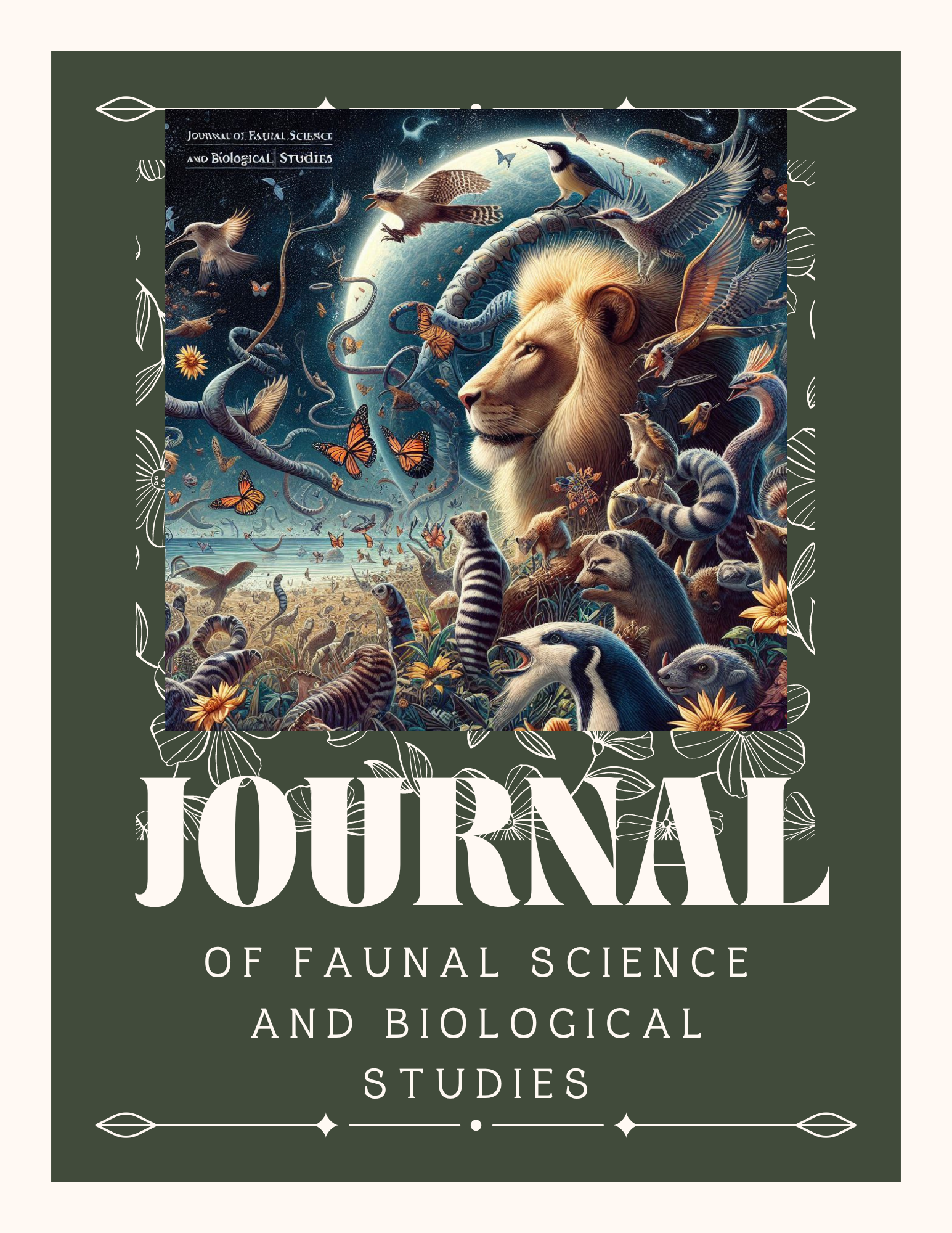Ethics and Malpractice
Publication Ethics and Malpractice Statement for the Journal of Faunal Science and Biological Studies
Manuscripts submitted to the Journal of Faunal Science and Biological Studies are evaluated solely on the basis of their scientific content. There are no publication charges. The journal upholds the highest standards of publication ethics and works to prevent malpractices. Authors submitting papers attest that their work is original, unpublished, and not under consideration elsewhere. They confirm that their work is original, not plagiarized, and that any use of others' work is appropriately cited or quoted. Our publication ethics and malpractice statement aligns with the guidelines developed by the Committee on Publication Ethics (COPE).
Duties and Responsibilities of Editors
The Editorial Team of the Journal of Faunal Science and Biological Studies, including the Editorial Board and Editorial Staff with the Publisher, is responsible for deciding which submitted articles are published. Editors have complete discretion to accept or reject articles and may consult with other reviewers or editors in making decisions. Manuscripts are evaluated based on scholarly and intellectual content, without regard to the authors' gender, race, religious beliefs, ethnic origin, citizenship, or political philosophy. The journal ensures fair play in editorial evaluation. Editors must avoid conflicts of interest and maintain strict confidentiality regarding submitted manuscripts, disclosing information only to the corresponding author, reviewers, and the publisher. Authors are encouraged to correct errors identified during the review process while preserving reviewer anonymity.
Duties and Responsibilities of Reviewers
Editorial decisions are based on peer review. Reviewers must maintain confidentiality and conduct objective reviews, providing clear, reasoned feedback. They should identify relevant uncited work and disclose any conflicts of interest. Reviewers must inform editors of any similarities between the manuscript and other known works. Information gained through peer review is confidential and must not be used for personal advantage. Reviewers should not review manuscripts where conflicts of interest exist due to competitive, collaborative, or other relationships with authors or institutions.
Duties and Responsibilities of Authors
Authors must present accurate accounts of original research and discuss its significance objectively. The paper should include sufficient literature details and references. All authors must have significantly contributed to the research. Fraudulent or knowingly inaccurate statements are unethical and unacceptable. Authors must ensure the work is original, unpublished, and appropriately cited if using others' work. Authors must follow applicable copyright laws and conventions, reproducing copyrighted material only with permission and proper acknowledgment. Manuscripts describing the same research should not be submitted to multiple journals. Proper acknowledgment of others' work is required, and authorship should be limited to those who made significant contributions. The corresponding author must ensure all co-authors approve the final paper and its submission. Financial support sources must be disclosed. Authors must promptly notify editors of significant errors in published work and cooperate in retraction or correction.
Publication Responsibility
The journal takes steps to identify and prevent research misconduct. In cases of serious flaws, articles will be retracted. The journal ensures high ethical and professional standards and responds promptly to possible misconduct. Copyright and licensing information is clearly described on the journal website. Plans for electronic backup and preservation of access to journal content are indicated.
Corrections and Retractions
When errors are identified in published articles, the publisher will decide on necessary actions, consulting editors and authors’ institutions as needed. Author errors may be corrected by a corrigendum, publisher errors by an erratum. Significant errors or evidence of misconduct may require retraction or an expression of concern, following COPE Retraction Guidelines. All authors must agree to the content of the notice.
Peer Review Policy
The peer review process ensures the publication of quality science. It is an objective process conducted by reputable scientific journals. Reviewers maintain high standards, and all manuscripts undergo peer review as outlined below.
Initial Manuscript Evaluation
Editors first evaluate all manuscripts. Exceptional manuscripts may be accepted at this stage. Manuscripts may be rejected for insufficient originality, scientific flaws, poor grammar, or being outside the journal's scope. Those meeting minimum criteria are reviewed by experts. Authors of rejected manuscripts are informed within two weeks.
Type of Peer Review
The journal employs single-blind review, where reviewers remain anonymous to authors.
Reviewer Selection
Reviewers are matched to papers based on expertise. The reviewer database, containing contact details and subject areas of interest, is regularly updated.
Reviewer Reports
Reviewers evaluate manuscripts for originality, methodological soundness, ethical guidelines, clear presentation of results, and appropriate referencing. Language correction is not part of peer review. Reviewers provide feedback in "Reviewer confidential comments to Editor" rather than "Reviewer blind comments to Author."
Peer Review Process Duration
The review process typically takes 2-8 weeks. Contradictory reports or delays may require further expert opinions. Revised manuscripts are usually returned within three weeks. Editors may request multiple revisions.
Final Report
A final decision, including recommendations and verbatim reviewer comments, is sent to the author.
Editor's Decision is Final
Editors, advised by reviewers, make the final decision to accept or reject articles.
Special Issues and Conference Proceedings
Special issues or conference proceedings may follow different peer review procedures. Authors contributing to these projects can request full peer review process details from the editorial office.
Becoming a Reviewer
To become a reviewer, contact the editorial office at acspublisher@gmail.com with your contact details. Approved requests will receive a confirmatory email asking for field of expertise details.
